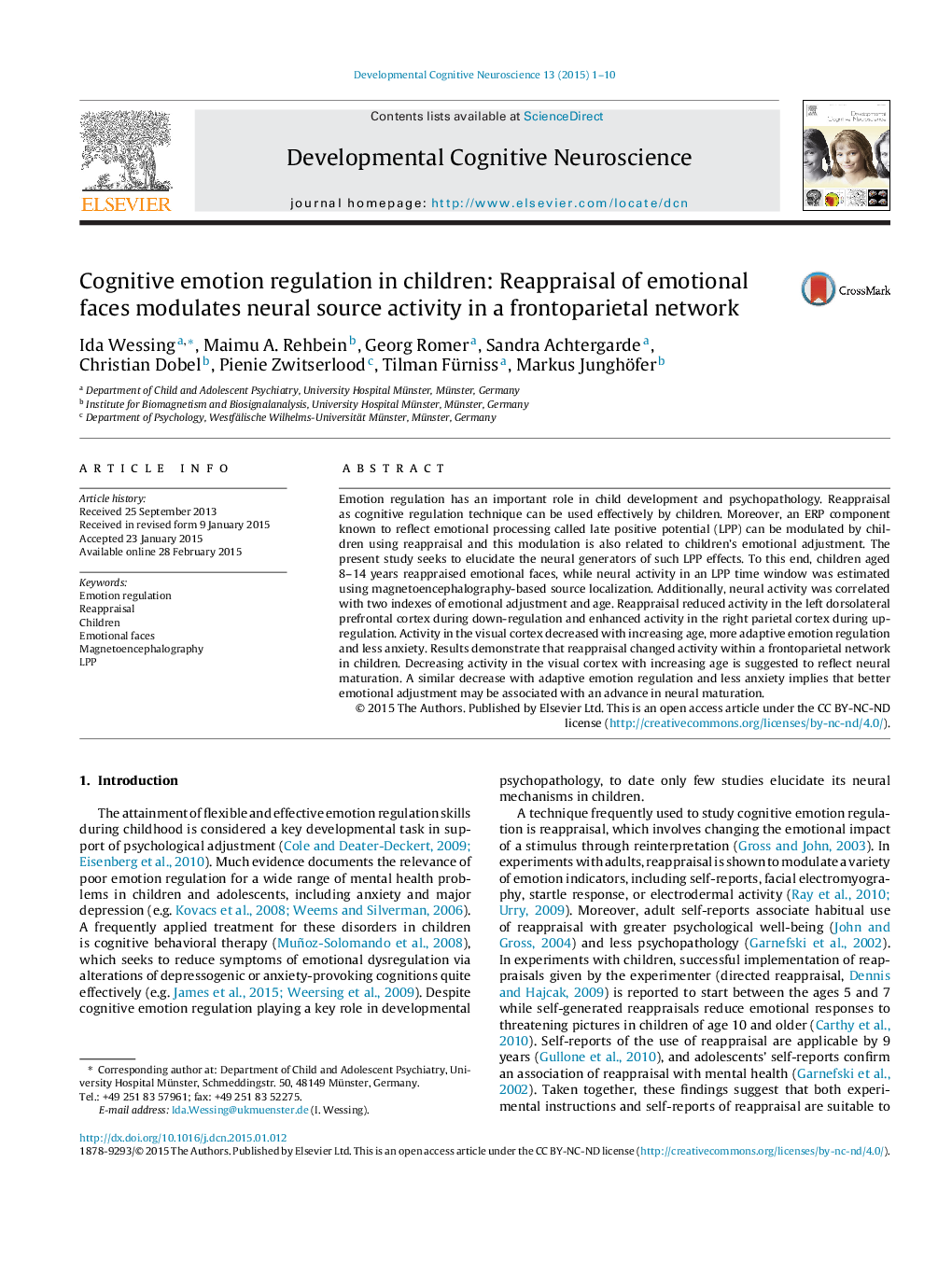| Article ID | Journal | Published Year | Pages | File Type |
|---|---|---|---|---|
| 4316462 | Developmental Cognitive Neuroscience | 2015 | 10 Pages |
•Reappraisal of emotional faces in children was examined with magnetoencephalography.•Neural activity in the LPP time-interval was modulated in frontoparietal networks.•Occipital activity was reduced with increasing age, indexing neural maturation.•A similar reduction was linked to better emotion regulation and less anxiety.•This may indicate an age-independent advance in neural maturation.
ABSTRACTEmotion regulation has an important role in child development and psychopathology. Reappraisal as cognitive regulation technique can be used effectively by children. Moreover, an ERP component known to reflect emotional processing called late positive potential (LPP) can be modulated by children using reappraisal and this modulation is also related to children's emotional adjustment. The present study seeks to elucidate the neural generators of such LPP effects. To this end, children aged 8–14 years reappraised emotional faces, while neural activity in an LPP time window was estimated using magnetoencephalography-based source localization. Additionally, neural activity was correlated with two indexes of emotional adjustment and age. Reappraisal reduced activity in the left dorsolateral prefrontal cortex during down-regulation and enhanced activity in the right parietal cortex during up-regulation. Activity in the visual cortex decreased with increasing age, more adaptive emotion regulation and less anxiety. Results demonstrate that reappraisal changed activity within a frontoparietal network in children. Decreasing activity in the visual cortex with increasing age is suggested to reflect neural maturation. A similar decrease with adaptive emotion regulation and less anxiety implies that better emotional adjustment may be associated with an advance in neural maturation.
